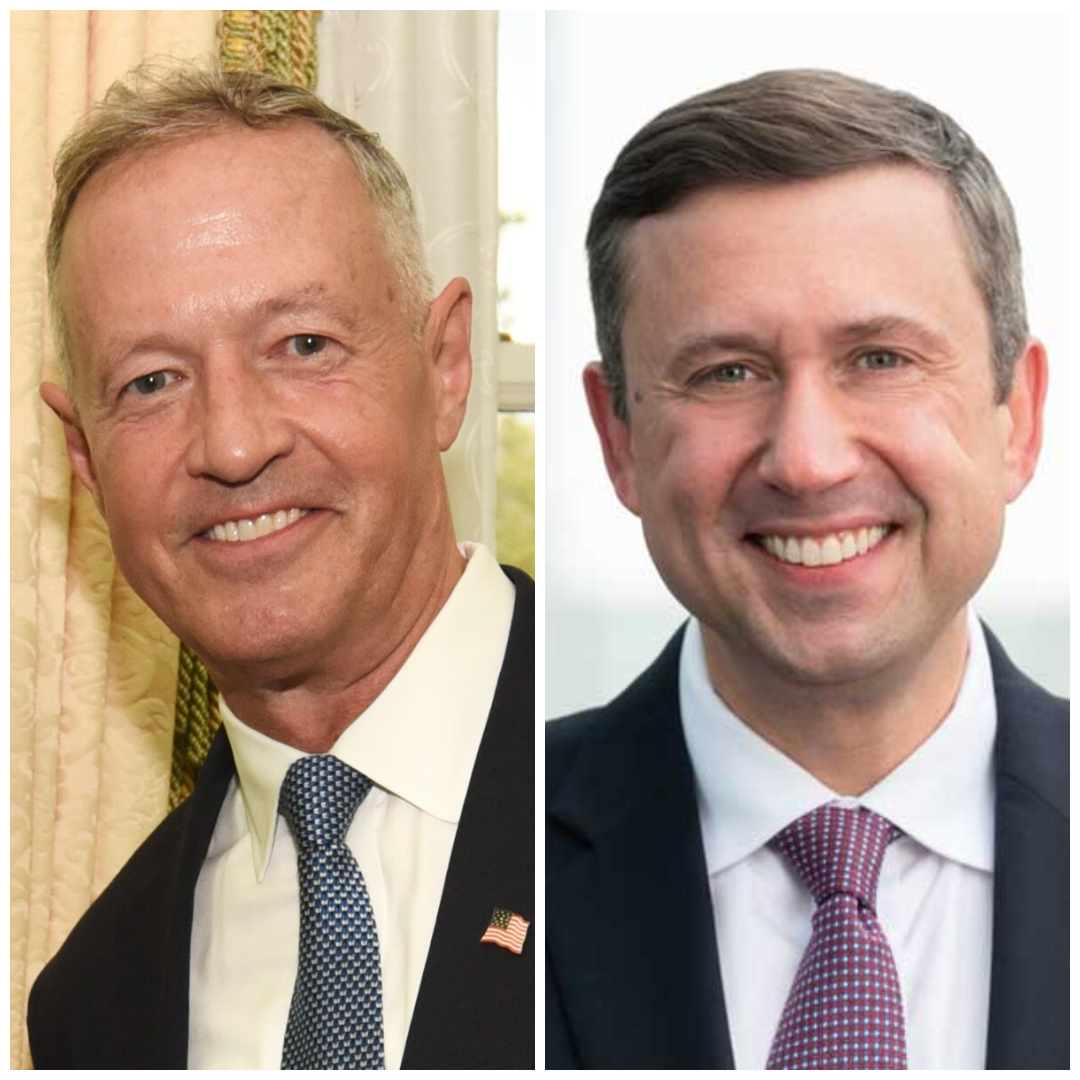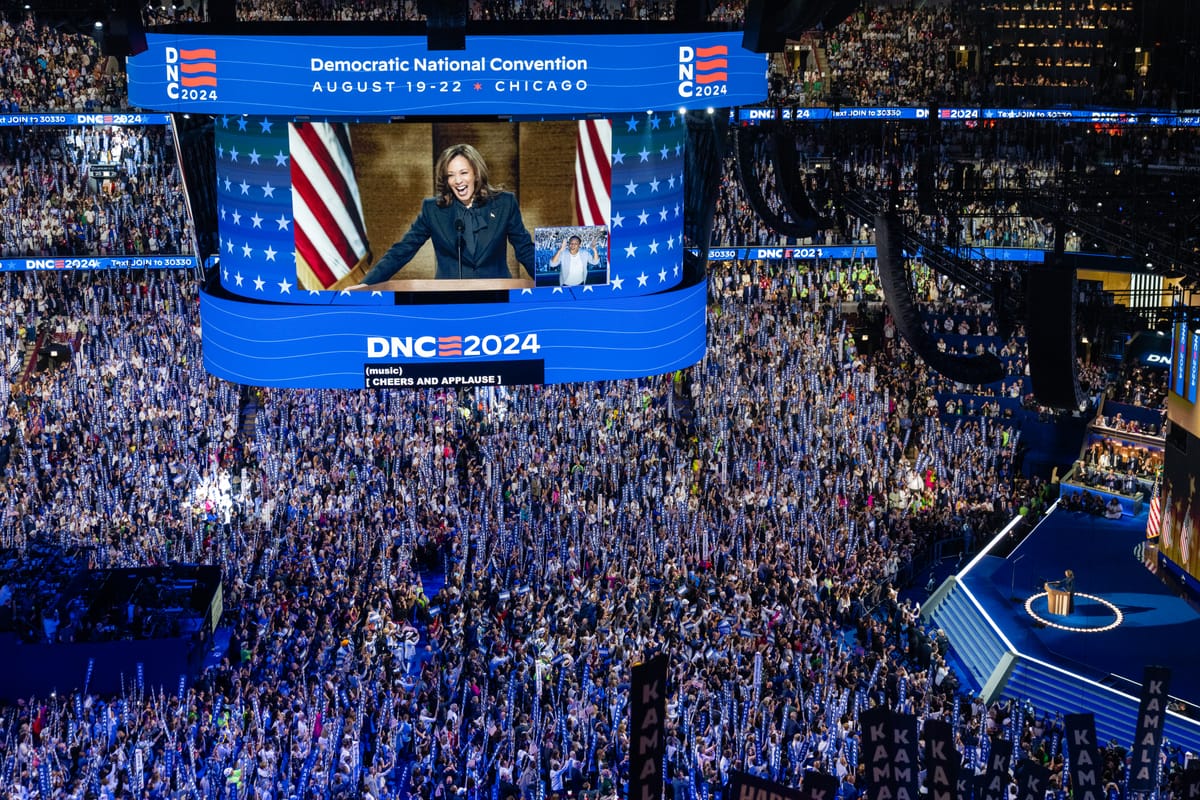In a time of reckoning for Democrats, the race to lead the Democratic National Committee and oversee the party is shaping up. The first hopefuls for DNC chair officially announced their bids two weeks after the party’s Election Day defeats, and the election has been scheduled for February 1.
Yesterday, I spoke with some reform-minded DNC members about their hopes for reshaping the DNC, addressing money in Democratic primaries, and challenging the corporate wing of the party over budget priorities and messaging.
DNC Chair Jaime Harrison, a former corporate lobbyist and South Carolina party chair who was tapped to be chair by Joe Biden, is not running for another four years in his position.
Two candidates for DNC chair have announced: first was former Maryland Gov. Martin O’Malley, a former commissioner of the Social Security Administration, then Minnesota Democratic-Farmer-Labor Party Chairman Ken Martin, a vice chair of the DNC. Others considering runs include Wisconsin Democratic Party chair Ben Wikler; Democratic strategist Chuck Rocha; former DNC vice chair Michael Blake, of New York; former Chicago mayor Rahm Emanuel; and Michigan state Sen. Mallory McMorrow. Another name in the mix is former Texas Rep. Beto O’Rourke.
‘Get Dark Money Out’
This year, former Ohio state Sen. Nina Turner is wrapping up eight years as a voting DNC member from her state. In the wake of the election, Turner is calling for a searching autopsy report from Democratic Party leadership, a ban on dark money in the Democratic primary process, and a turnover in the top consultant class that steered Harris’ campaign.
Turner told Sludge, “I think for Democrats looking at how they lost the popular vote and the Electoral College, it should be a wake-up call for the Democratic Party that it cannot be business as usual. The party should utilize this moment to take the party in a new direction that answers to the needs of the people, the voters that they need to re-engage and win over again.
“The first thing I believe is that anybody running to be the new chair of the Democratic Party has to say that we will have no dark money, in primaries particularly,” Turner said. “One of the ways that the Democratic Party can set itself apart and also show that it has learned a lesson is to say, no dark money in Democratic primaries.
“Another thing,” Turner said, “all of the consultant class that was a part of guiding both the DNC and Vice President Harris: they’ve all got to go—and I mean, matter of fact, they owe us a refund. They owe the DNC and the folks who have donated their hard-earned money a refund.”
As an example of the pressure needed from pro-reform DNC members to advance rules changes, Turner pointed to the recent cases of the DNC’s Resolutions Committee twice blocking a proposed amendment banning “dark money” in Democratic primaries. “This was a resolution put forward that the committee wouldn't even put on the floor under the leadership of Jaime Harrison because they knew that the members, including myself, would have voted for that resolution to get dark money out,” she said.
Turner said, “The Democratic Party writ large did not read the tea leaves. In other words, this was about the economy, no doubt about it, and no amount of celebrity concerts was going to change the fact that the American people were still reeling from the ravages of inflation. For them, it was still about eggs and butter and milk and gas and rent.
“There has to be an autopsy report,” Turner said. “There has to be a real commitment from Democratic Party leadership of analyzing what went wrong and having the courage to say, ‘we messed up,’ and we must make a change going into the midterms, as we work our way to 2028.”
The 2024 election cycle was marked by enormous spending by outside lobbying groups, much of it to knock out progressive incumbents in Democratic primary contests. In the summer of 2022, responding to the surge in super PAC spending bankrolled by wealthy donors, leaders of the Congressional Progressive Caucus sent a letter calling on party leadership to condemn the outside spending deluge in Democratic primaries, but their calls did not receive a response.
‘Dirty Money’ in State Primaries
Longtime DNC member Larry Cohen is the chair of Our Revolution, founded after the 2016 presidential campaign of Sen. Bernie Sanders. In looking at the contest for DNC chair and reforming the party’s operations, Cohen said his goal is: “Organizing in, dirty money out.”
Toward having a serious plan at the top of the DNC for voter outreach, Cohen told Sludge, “There are more than 3,000 counties nationwide and no Democratic Party presence in most of them, no structure in most of them, no benchmarking being done in terms of voter registration and turnout—and in this election, turnout beat Vice President Harris and candidates like Bob Casey” in Pennsylvania.
“And there’s no focus on organizing alliances with unaffiliated voters, who are often the biggest group,” Cohen said.
“It’s the gateway to the primary where reform is needed,” Cohen said, pointing out that the primary election rules are set by states. “‘If you want to run for nomination, sign this pledge of no dark money in your campaign, repudiating all dark money—that is absolutely within the purview of all state Democratic parties.”
He envisions the next chair being empowered to set “big incentives based on your reaching your goals: what are state parties willing to do to get dirty money out of their nominating process?”
Cohen said, “We need an official group similar to the Unity Reform Commission to look at what are the options for state parties. The DNC could give a handbook in the nominating process so it’s a grassroots process—I’m hoping one or more of the DNC chair candidates openly supports that. The state parties are the only real avenue for reform and the DNC insiders aren’t going to take the initiative unless activists in each state take the initiative.”
Cohen pointed out that the DNC chair vote at the Winter Meeting would be held in-person, with DNC members likely being allowed to send a proxy if they are unable to attend—meaning it’s expected that many of the approximately 448 voting DNC members will not be casting ballots in the contest, or would be using proxies.
More Money for States
Jane Kleeb, in addition to leading the Nebraska state party, is the founder of the Bold Alliance, a coalition of grassroots environmental groups based in rural states. She’s supporting Ken Martin for DNC chair for his willingness to take on the D.C. establishment.
Kleeb told Sludge, “The most critical piece is that we hear a lot from DNC candidates about messaging, fundraising and bringing working class voters back into the party, and all those things are great. But unless we radically reform the structure of the DNC so that more than 10% of the budget is going to state parties—who are the most in touch with voters—the best messenger in a message box won’t matter. We have to get money back to the state parties because we’ve become too consultant- and too D.C.-centric.”
Kleeb said, “We don’t need fancy consultants or message talking points to tell us what voters think, we know because we're closest to the ground. The fundamentals get lost—back to precinct and block capitan programs, back to sending voters guides so they know who the Democrats are on the ballot. It’s been about the establishment not wanting to change—literally a handful of people are controlling the resources and direction of the DNC, and that’s not how we should be functioning.”
Two Declared Candidates

Candidates for chair have been calling DNC members to ask for their support and doing media interviews on how the party’s economic messaging to voters—many of whom were financially struggling and voted for change in the White House—can be overhauled. The Harris campaign’s corporate-connected D.C. consultants came up far short in pitching the Democratic ticket to working-class voters.
In a letter, Harrison announced that the DNC chair election will be held on Feb. 1, during the party’s Winter Meeting in National Harbor, Maryland. Before that date, on Dec. 12, the DNC Rules and Bylaws Committee will meet to formalize the rules for nominating the DNC Chair and other officers, and in January, the DNC will hold a series of four candidate forums, both virtual and in-person. To run, candidates must gather signatures of 40 DNC members. The vote is open to 448 active DNC members, who include 73 “at-large” members put forward as a slate by the DNC chair and not subject to individual votes by DNC members from states and territories.
In a New York Times interview launching his bid, Martin O’Malley called for an “after-action report” on the party’s performance this year, an initiative for which Ken Martin has also called. Some of O’Malley’s comments in the interview echoed the Harris campaign’s themes of an “opportunity economy,” and in a NewsNation interview he recommended the party focus on Democrats who won in red areas.
Sludge’s Donald Shaw recently spotlighted O’Malley’s role as a co-founder of the group NewDEAL, which is tied to the business-favoring New Democrat Coalition.
DNC Chair candidate Martin O’Malley is the founding chair of NewDEAL, a group for “pro-growth progressives” with ties to New Dem Coalition. The group’s advisory council and board include corporate lobbyists with Akin Gump and Fulcrum, and the president of Third Way. pic.twitter.com/j9s5HADm47
— Donald Shaw (@donnydonny) November 19, 2024
NewDEAL’s board includes Arshi Siddiqui, a former lobbyist with large influence firm Akin Gump for more than 14 years who recently hung out her own shingle with the boutique firm Bellwether Government Affairs. Its advisory council includes Oscar Ramirez, co-founder of Fulcrum Public Affairs, which lobbies for clients including big business trade association the Business Roundtable, and former Sen. Mary Landrieu (D-La.), a fossil fuel industry ally who became an oil lobbyist. The 501(c)4 nonprofit and its c(3) affiliate had more than $1.7 million combined in revenue in its most recent tax year available.
Minnesota’s party head Martin is seen as an ally of smaller state parties. He published an op-ed in Fox News on Nov. 18 drawing attention to how voters in Missouri approved ballot measures like one to raise the state minimum wage, which would seem to be a core Democratic issue, while also handing Republicans statewide control. His diagnosis, in a recent HuffPost interview, is that the party has a “branding problem.”
In interviews, both O’Malley and Martin did not take positions on the possibility of changing the presidential primary calendar schedule, which under Biden saw South Carolina moved to the front of the pack.
Former New Orleans mayor Mitch Landrieu, a co-chair of the Harris campaign, and New Jersey Gov. Phil Murphy have opted out of DNC chair consideration.
The last time the Democrats lost the White House, in 2016, DNC members proposed a raft of reforms, but most were discarded without coming to a vote of DNC members. The Unity Reform Commission, which had four meetings in 2017, was a body of 21 members, with 10 selected by Hillary Clinton, eight by Bernie Sanders, and three by then-chair Tom Perez. One of the ideas that was proposed in the Commission's report, though not ultimately approved by DNC members, was “the formation of a detailed financial conflicts of interest policy that expands on the Charter’s conflicts/ethics policy (Article One, Section 7).” The report also recommended that the Budget and Finance Committee provide the Executive Committee with a closed-session report on its goals, and that the DNC chair and leadership prepare an annual budget presented to DNC members at each regularly scheduled meeting.
At the outset of his term, Harrison appointed more corporate lobbyists to top DNC groups like the Budget and Finance Committee, and in the weeks after the 2020 election he did not respond to requests from DNC members for internal party dialogue on reforming the DNC to make it more responsive to state organizers.













